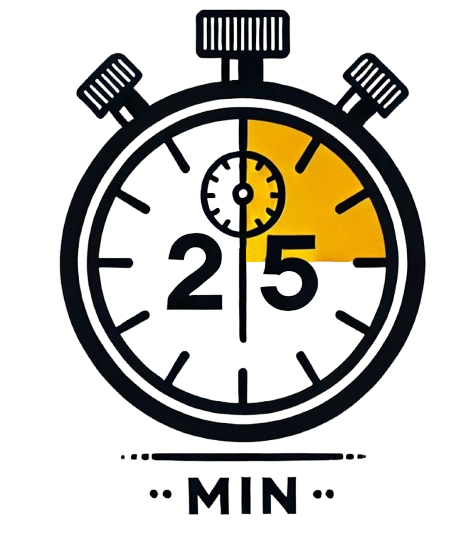Understanding Why Short Study Sessions Work Better - Part 2
Master Your Time: The 25-Minute Stopwatch - A Simple Yet Powerful Tool for Productivity and Focus.
Imagine trying to read a textbook chapter for a long time without any breaks. After a while, you might notice your mind drifting and the words becoming a blur. This isn’t because you’re lazy; it’s because your brain isn’t built to focus at 100% for hours at a stretch.
Research in cognitive psychology shows that our attention fades over time. The longer we push ourselves without breaks, the harder it becomes to learn and remember what we’re studying. Scientists like John Medina (2008) have noted that our brains start to lose focus after about 10 minutes of doing the same thing. If you keep going without resting, you might not learn as well as you could.
Short breaks help your brain recover. Early researchers like Hermann Ebbinghaus (1885/1913) discovered the “spacing effect,” which means that spreading out your studying with pauses in between helps you remember more over time. Recent studies (Brown, Roediger III, & McDaniel, 2014) confirm that shorter, well-planned sessions are better for memory than cramming everything at once.
By studying in shorter periods—like the 25-minute Pomodoro sessions—you keep your mind fresh and avoid burnout. Over time, you learn more and remember more because your brain isn’t overloaded.
Up Next: Now that we know why shorter sessions help, let’s look at how taking regular breaks also helps your body, not just your mind.
References:
Brown, P. C., Roediger III, H. L., & McDaniel, M. A. (2014). Make It Stick: The Science of Successful Learning.
Ebbinghaus, H. (1885/1913). Memory: A Contribution to Experimental Psychology.
Medina, J. (2008). Brain Rules: 12 Principles for Surviving and Thriving at Work, Home, and School. Pear Press.
Sweller, J. (1988). Cognitive load during problem solving: Effects on learning. Cognitive Science, 12(2), 257–285.
